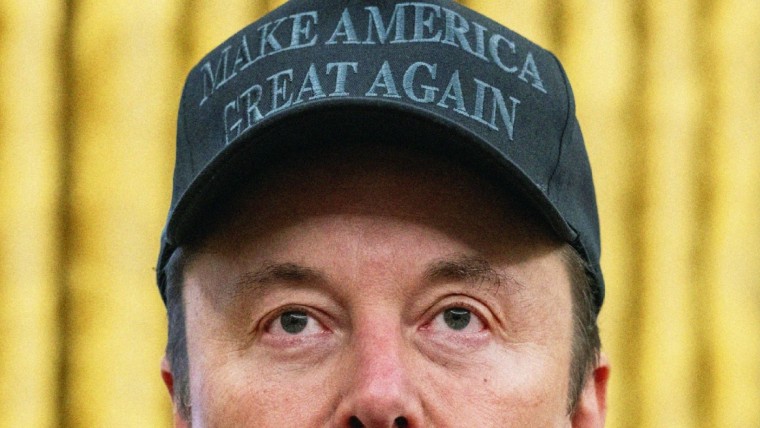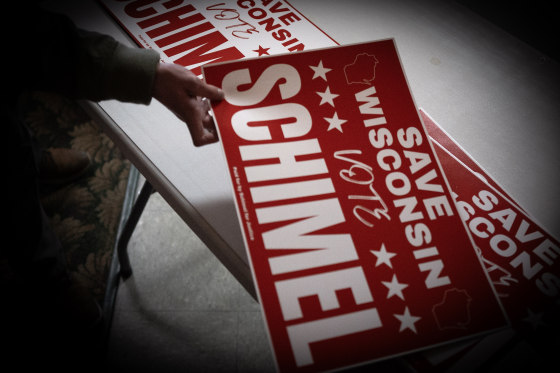Here’s a simple question: Should a rich person be allowed to write you a check for voting the way they want?
From a legal perspective, the answer is complicated, as it depends on how the offer is structured and how prosecutors and courts interpret various state statutes.
But set that aside. Don’t even look at it from an ethical or moral perspective. Just ask yourself: Practically, is that a good idea?
The question has come up because billionaire federal contractor Elon Musk is trying several creative ways to encourage turnout in a Wisconsin state Supreme Court race he’s taken an interest in. But history has shown that if this works and it remains legal, it won’t be long before other billionaires adopt similar tactics.
Giving voters cash directly is just cutting out the middlemen of campaign consultants and ad makers.
If that happens, sweepstakes could become a staple of every election cycle as billionaires compete to offer you cash. You could call it Balance-of-Powerball, maybe, or MAGA Millions.
It’s perhaps inevitable that we would end up here. After the Supreme Court began dismantling the campaign finance system with the 2010 decision in Citizens United, corporations and the wealthy have found more and more creative ways to spend money on elections. Giving voters cash directly is just cutting out the middlemen of campaign consultants and ad makers.
Now, let’s talk about the specifics of this case.
Two political action committees linked to Musk, America PAC and Building America’s Future, have disclosed spending about $17 million on the Wisconsin race, while Musk donated $3 million to the state Republican Party, according to ProPublica. They and other big spenders have helped push overall spending on the race to more than $80 million, making it the most expensive judicial race in American history.
But Musk didn’t stop there. In true entrepreneurial fashion, he looked for other ways to influence the race.
First, America PAC put together a two-sentence petition “in opposition to activist judges,” offering $100 to any registered voter in Wisconsin who signed it and another $100 for any voter who referred another person to sign it. In exchange, voters just have to submit their full name, email, mailing address and cellphone numbers — all valuable information for anyone running a get-out-the-vote effort, especially for a low-turnout judicial election.

It’s not the first time Musk’s PAC has used this tactic. In the run-up to the November presidential election, America PAC ran a “sweepstakes” offering million-dollar prizes for voters who signed a petition that seemed designed to gather names for a get-out-the-vote effort in swing states. Musk’s own lawyers admitted in court that the “winners” of the prizes were not actually randomly chosen but were more like paid spokespeople.
Officially, the giveaways are just for voters who signed a petition. But let’s be real. The PACs wouldn’t be doing this if they didn’t think it would help Musk’s preferred candidate, Brad Schimel. Musk is not exactly known for charity. (In fact, his private charitable foundation did not give away the minimum amount required to avoid tax penalties for three years in a row, most recently missing the mark by $421 million.)
When you think about it, the million-dollar giveaway even seems a little cheap.
Musk is currently worth $337 billion, according to the Bloomberg Billionaires Index. A million dollars to him is equivalent to about one-hundredth of a cent to a person making $100,000 a year. He could give a million dollars to half the people who’ve already voted in Wisconsin, and he’d still be the 11th richest person in the world.
The giveaway tactic has survived court challenges before, so it seems like it’s probably on solid ground, legally. The PAC has already identified a voter in Green Bay, Scott Ainsworth, as the recipient of its first $1 million check. Ainsworth posed for a photo with a giant check like in those old contests from the 1980s with Ed McMahon and the “Prize Patrol.”
The giveaway tactic has survived court challenges before.
But Musk then went further, posting on X, the social media platform that he owns, that he would give away two more checks for $1 million each to attendees of a Wisconsin event “limited to those who have voted in the Supreme Court election.”
Election law expert Rick Hasen wrote that because those checks would only be given to people who have voted, they would “appear to violate the plain meaning” of a state anticorruption statute. The post was later deleted, and the Wisconsin attorney general is seeking a court order to stop that particular giveaway.
Again, “Is this legal?” is a question for the attorney general and the courts. But it’s not the question under consideration here.
One of Musk’s stated reasons for getting involved is so the Wisconsin court will approve a gerrymandered map that gives Republicans a slight edge in the U.S. House of Representatives. (One might also note that Tesla is currently suing over a Wisconsin law that bars its dealerships.) But whatever Musk’s reasons for using his insane wealth to influence the election, the effort is unseemly.
For the purposes of this exercise, it doesn’t matter what his motivations are. You might even agree with the next billionaire who wants to try such tactics — or at least favor the same outcome as them. But is this how we want to run our democracy, by dangling cash in front of voters? What next, scratch-off ballots with random prizes for voting “correctly”?

